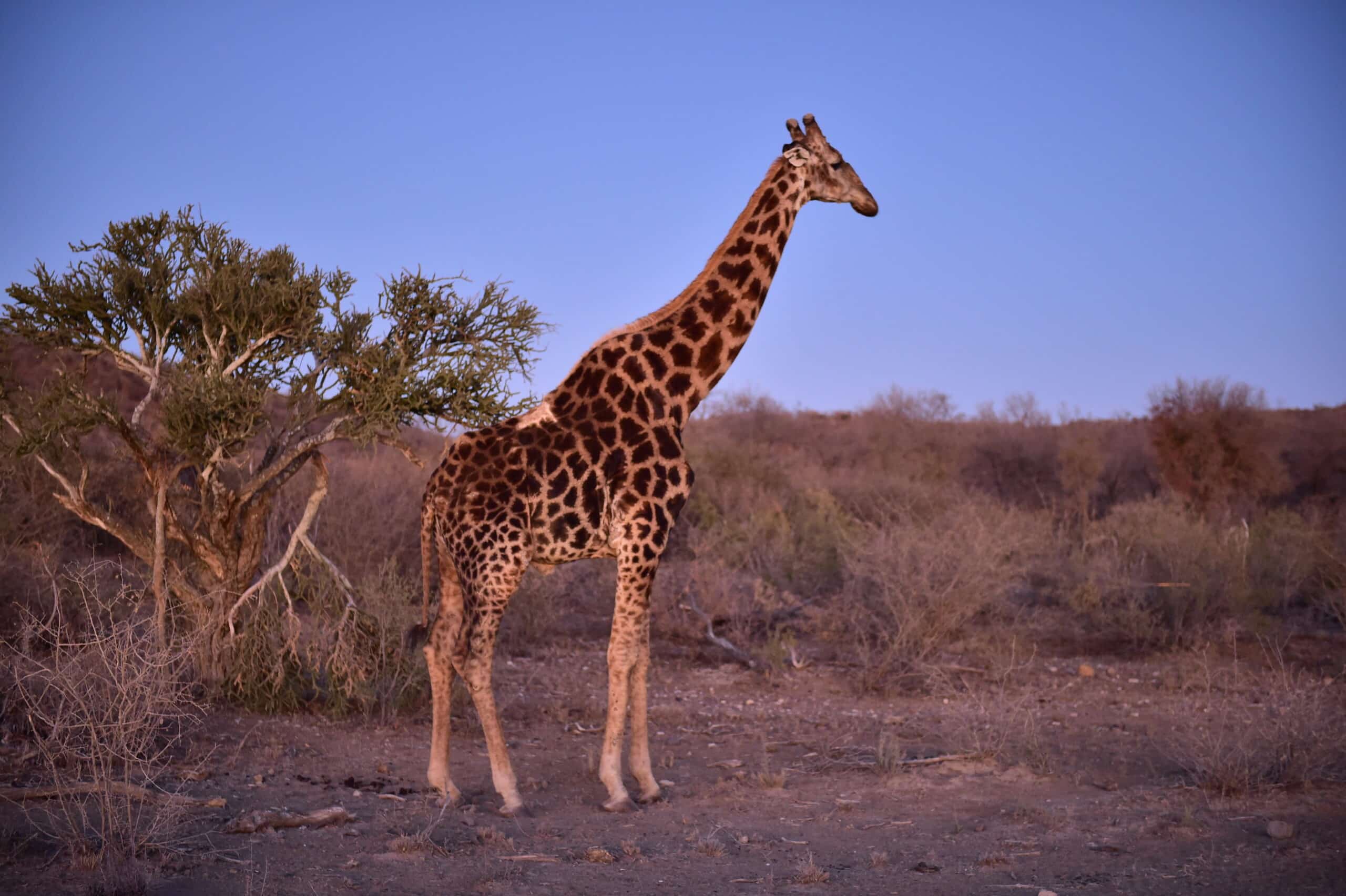Wondering what went right this year in the conservation world? We’ve got you covered with our Conservation Optimism Round-Up! We have collated 12 stories of optimism (one from each month) from around the globe for that final dose of motivation before the start of 2023.
1. JANUARY: Giraffe populations are rising, giving new hope to scientists
” According to a recent analysis of survey data from across the African continent, the total giraffe population is now around 117,000, approximately 20 percent higher than it was thought to be in 2015, when the last major survey was published.” ”
#ConservationOptimism https://t.co/45JNTjU2sT
— Stephanie Manka (Schuttler), Ph.D. | Scientist (@FancyScientist) January 14, 2022
2. FEBRUARY: Panama Enacts a Rights of Nature Law, Guaranteeing the Natural World’s ‘Right to Exist, Persist and Regenerate’
” The nation joins a host of other countries in embracing a legal movement that gives land, trees, rivers, coral reefs and mountains unique legal rights, similar to humans, corporations and governments.”
A little good news, #Panama just recognized the rights of nature into law: https://t.co/OsFj9KejDh
— Mike Hudema (@MikeHudema) February 26, 2022
Protect people and the planet.#ActOnClimate #climate #energy #nature #rewilding #hope pic.twitter.com/1kWXhQQrtu
3. MARCH: Plastic pollution: Green light for ‘historic’ treaty
” The world is set to get a global treaty to tackle plastic pollution. Nearly 200 countries have agreed to start negotiations on an international agreement to take action on the “plastic crisis”
An historic move & another blow to to Big Oil. The UN has approved the landmark creation of the world's first global plastics pollution treaty..please @UNEP, do not dumb it down by focusing on waste - target PRODUCTION. #WarOnPlastic #ConservationOptimism https://t.co/tXlUfppw4a
— Mel dawson (@Meldawson6) March 5, 2022
4. APRIL: New natural history GCSE in the UK to focus on protecting the planet
” The Department for Education said the qualification would allow pupils to learn about organisms and their environments, as well as environmental and sustainability issues, “to gain a deeper knowledge of the natural world around them”. Pupils will also develop skills for future careers in conservation, “from understanding how to conserve local wildlife to conducting the fieldwork needed to identify species”, the DfE said.”
What amazing news!
— Nina Seale (@hirundonova) April 19, 2022
We're finally getting a Natural History GCSE!
I would've loved studying something so focussed on ecology earlier on in my education. It would've been so useful for an insight into what my career could look like. https://t.co/bhtLDbnFLi #ConservationOptimism
5. MAY: Record number of dams removed from Europe’s rivers in 2021
” At least 239 barriers, including dams and weirs, were removed across 17 countries in Europe in 2021, in a record-breaking year for dam removals across the continent. Spain led the way, with 108 structures taken out of the country’s rivers. “
Some #ConservationOptimism for your #MondayMorning:
— Synchronicity Earth (@SynchEarth) May 16, 2022
At least 239 barriers, including dams and weirs, were removed across 17 countries in Europe in 2021, in a record-breaking year for dam removals across the continent!https://t.co/JuPu6F7hxp
6. JUNE: Tiny Pacific island nation declares bold plan to protect 100% of its ocean
” The Pacific island state of Niue has announced that it will protect 100% of the ocean in its exclusive economic zone (EEZ), which spans 317,500 sq km (122,000 sq miles), roughly the area of Vietnam. “
Brilliant #ConservationOptimism..our Pacific family continues to 'punch above it's weight' on climate & marine protection. Niue declares 100% of the ocean in its exclusive economic zone (area the size of Vietnam) a marine park!..this is real leadership! 💙 https://t.co/G6htN6pcpz
— Mel dawson (@Meldawson6) May 30, 2022
7. JULY: Nepal has doubled it’s wild tiger population
” Nepal has succeeded in doubling its wild tiger population, with a latest estimate of 355 individuals – that’s an increase of >190% since 2009″
Fantastic news for #BigCats🐯
— WWF UK (@wwf_uk) July 29, 2022
Nepal has succeeded in doubling its wild tiger population, with a latest estimate of 355 individuals - that's an increase of >190% since 2009! 📈
A positive step towards global #TigerConservation and the future of these cool cats! 🐅 pic.twitter.com/KeFMI9b1Ab
8. AUGUST: Magnolia species lost to science for 97 years rediscovered in Haiti
” A conservation team has rediscovered a native magnolia tree in a forest in Haiti for the first time since it was lost to science in 1925.”
Thought to be #extinct, the Northern Haiti #Magnolia has been #rediscovered in the #forests of #Haiti after not being seen for nearly 100 years!#lostandfound #trees #nature #wildlife #biodiversity #conservationoptimism #conservation #LetNatureThrive https://t.co/9jdzRKnJ58
— Global Conservation Solutions (@_GCS_) August 15, 2022
9. SEPTEMBER: Cheetahs are back on Indian soil after 70 years
” 70 years after its extinction from India, the cheetahs are back on Indian soil. Eight big cats were released into the Indian wildlife in Madhya Pradesh’s Kuno-Palpur National Park (KPNP) on Saturday by Prime Minister Narendra Modi, who termed it a “historic day” ”
A big day in Indian #conservation . Certainly ambitious to reintroduce the only megafauna species to go extinct in this country. #rewilding #conservationoptimism #CheetahIsBack #Cheetah #CheetahinIndia #CheetahReturnshttps://t.co/qJ5CEL5UMJ
— Anish Banerjee (@AnishWildlife) September 17, 2022
10. OCTOBER: Innovative dolphin-saving devices bring hope for remaining river dolphins
” Thanks to electronic pingers, the last 80 river dolphins in the Mahakam river in Indonesia can breathe a little easier. A pilot project last year proved that the pingers prevent dolphins from becoming entangled in fishing nets – their main cause of death – and now the project has been extended to all fishers along the stretch of river where the dolphins live.”
Crowdfunding! Tech! #River dolphins!
— David Tickner (@david_tickner) October 18, 2022
Proper 21st century conservation, with great results. Lovely stuff. 🐬#ConservationOptimism @Darwin_Defra @wwf_uk https://t.co/w3IxLyQ3R9
11. NOVEMBER: Shark fin trade regulated at last in landmark decision
” Countries at the world’s biggest wildlife summit have voted for the first time to regulate the trade that kills millions of sharks every year to feed the vast appetite for shark fin soup. In what marine conservationists have hailed as a landmark decision, parties at the 186-nation Convention on International Trade in Endangered Species of Wild Fauna and Flora, or CITES, voted to limit or regulate the commercial trade in 54 shark species of the requiem family”
Environmental News: Turning point for threatened sharks
— Gilbert White's House & Gardens (@GilbertWhites) November 19, 2022
54 shark species of the requiem family - including the blue shark (a summer visitor to the UK's waters) - are due to receive greater protection under CITES following a historic vote on Thursday.https://t.co/HtLxL1lOfs
12. DECEMBER: Meet the first 10 UN World Restoration Flagship programmes- due to be launched early next week at COP15.
” These 10 examples spread across 23 countries, all ecosystems and represent some of the most promising. ambitious and inspirational examples of making peace with nature and biodiversity. ”
This should be good. Healthy dose of #EarthOptimism for anyone who needs it. And there will be some nice surprises. Tuesday 13 December at #COP15 and online. https://t.co/IF6KG3rHRv
— Martin Harper (@martinBirdLife) December 10, 2022
Have a story to share for our weekly round-up? Use #ConservationOptimism on Twitter, Facebook, LinkedIn and Instagram!


